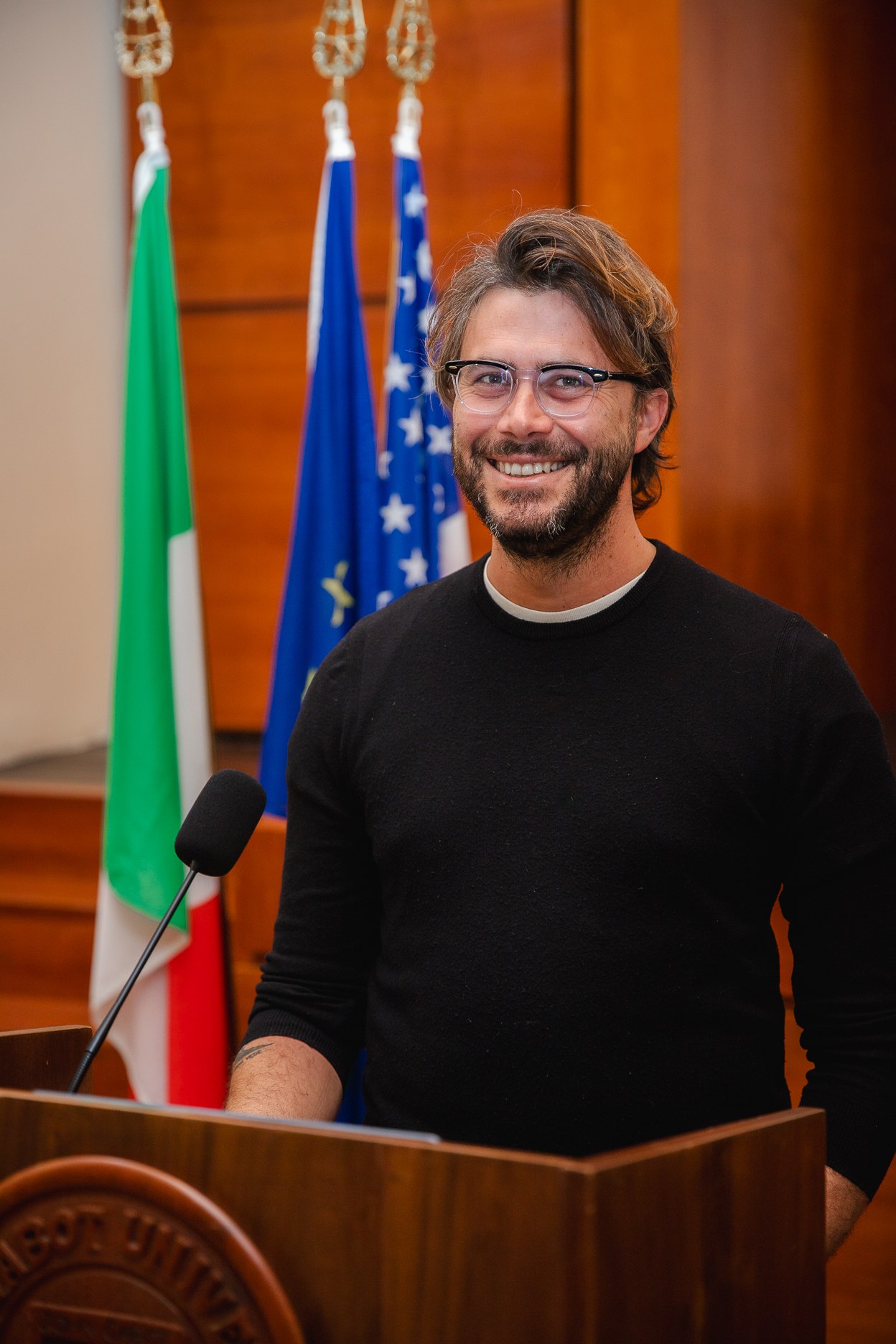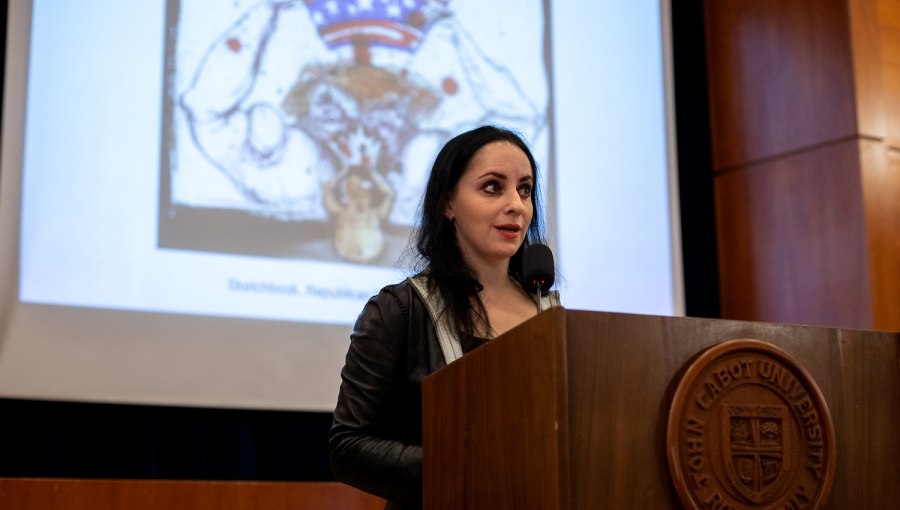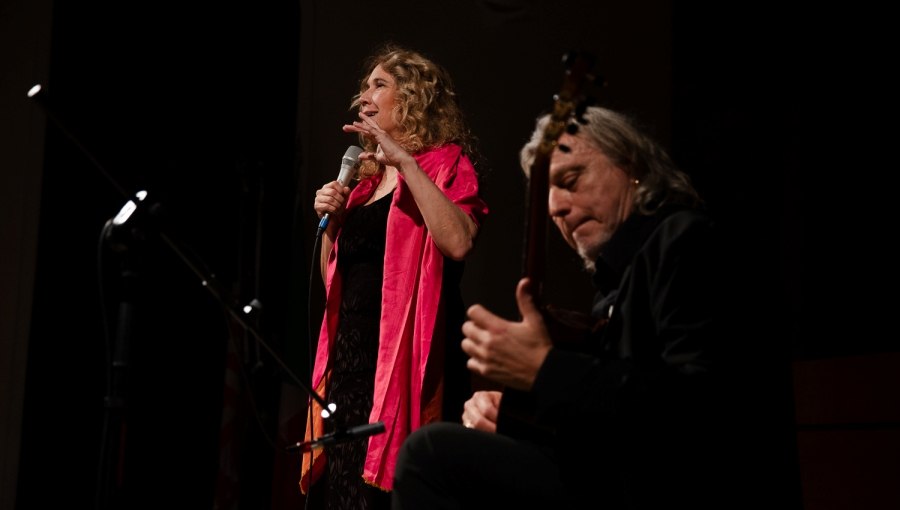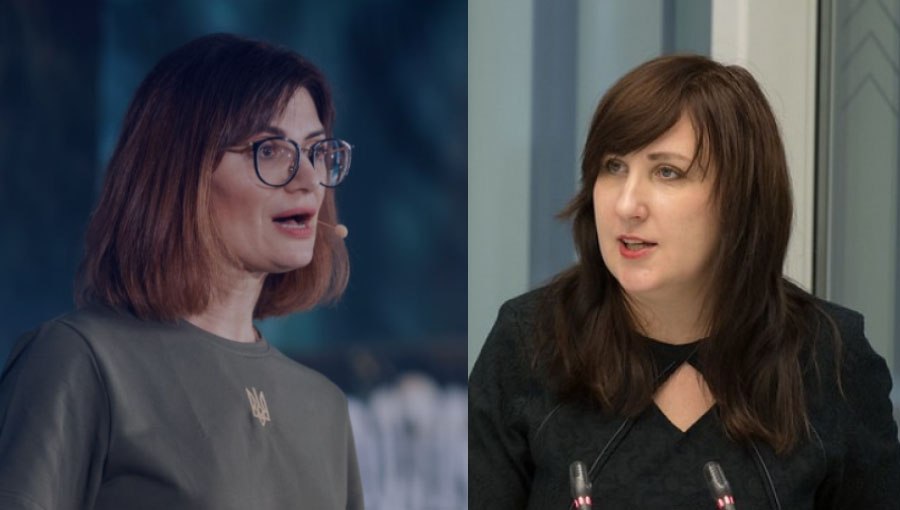The Dark Side of Language: JCU Welcomes Filippo Domaneschi
On February 5th, JCU welcomed Filippo Domaneschi, Associate Professor of Linguistics and Philosophy of Language of the University of Genoa, for the lecture “The Dark Side of Language: Slurs and Power Asymmetries.” The talk was sponsored by the Department of Psychology and Social Sciences, and focused on the discriminatory power that insults draw from their social context and power imbalances.

Understanding Slurs
Professor Domaneschi began the lecture by analyzing the dual function that slurs have in language and giving the example of the term “wop,” an English derogatory term for Italian immigrants in the USA. He explained that slurs always carry both a descriptive and an expressive component. The descriptive component categorizes someone within a social group, while the expressive component conveys a negative attitude toward that group. Because slurs have neutral counterparts, they function differently from the “average insult,” and their offensiveness depends on the context in which they are used.
Professor Domaneschi also highlighted how discriminatory language exists across all cultures and languages, targeting people based on their identity. For instance, people from Southern Italy have been insulted by Northern Italians with the slur “terroni.” Additionally, Germans use the slur “spaghetti-fresser,” while the French use “rital” in reference to Italians. Based on these patterns, he categorized the different ways in which slurs are used, and discussed how the meaning changes based on context:
- Standard offensive use: a slur is intentionally used to insult someone;
- Nonstandard, offensive use: a slur is inaccurately used but it is still offensive (for example, calling a non-Italian person a “wop”);
- Nonstandard, non-offensive use: slurs are discussed in research or academics;
- Reclaimed, in-group use: marginalized communities reclaim slurs for empowerment (for instance, “queer” in LGBTQ+ community).
When Are Slurs Offensive?
Professor Domaneschi argued that words are not inherently offensive but become so when they are used in a way that reinforces power asymmetries between speakers. One study focused on word association tasks, where participants exposed to homophobic slurs were more likely to make discriminatory decisions. This showed that slurs have real-world implications and consequences. An experiment conducted by Professor Domaneschi analyzed how slurs are perceived and processed. The participants were given scenarios where a slur was used in an in-group setting versus an out-group setting. The results expressed that self-referential slurs were processed faster, judged as less offensive, and triggered a lower emotional reaction. This suggests that the offensive and discriminatory value of slurs is not necessarily tied to the word itself, but rather to the context in which it is used.
The Real-World Impact of Hate Speech
In addition to the emotional harm slurs can provoke, Professor Domaneschi highlighted psychological research showing their social and economic effects. Slurs contribute to exclusion and inequality, not just in social interactions, but also in policies and workplace dynamics. The economic consequences of slurs have proven to be particularly important because discriminatory language can shape workplace bias, legal discrimination, media influence, and more.
Furthermore, Professor Domaneschi discussed how there is controversy surrounding the regulation of hate speech, on who has the authority to decide whether a word is offensive and whether certain words should be banned altogether. Also, words that were once considered neutral have over time become highly offensive due to historical and social shifts, such as the Italian equivalent of the N-word. This shows that hate speech is not just about language — it also shapes social and economic aspects of society.
Power Asymmetry and Key Takeaways
Based on English Philosopher John Austin’s speech act theory, Professor Domaneschi analyzed how slurs function as verdictive acts, speech acts in which the speaker makes an assessment or judgement about the acts of another. This theory describes how slurs reinforce power dynamics between the speaker and listener. Additionally, he proposed that a slur only functions as a derogatory term if a power asymmetry exists between these two roles. For example, a racial slur said by a dominant group towards a marginalized group carries a different weight than vice versa. This approach explains why certain words can shift from offensive to neutral over time, such as the term “queer.”
Professor Domaneschi concluded the lecture by emphasizing that it is not words themselves that create discrimination, but social structures. A slur’s offensiveness is shaped by who is speaking, who is being spoken to, and the existing power dynamics between them. This encourages us to go beyond words in order to examine deeper social inequalities that shape their impact.





